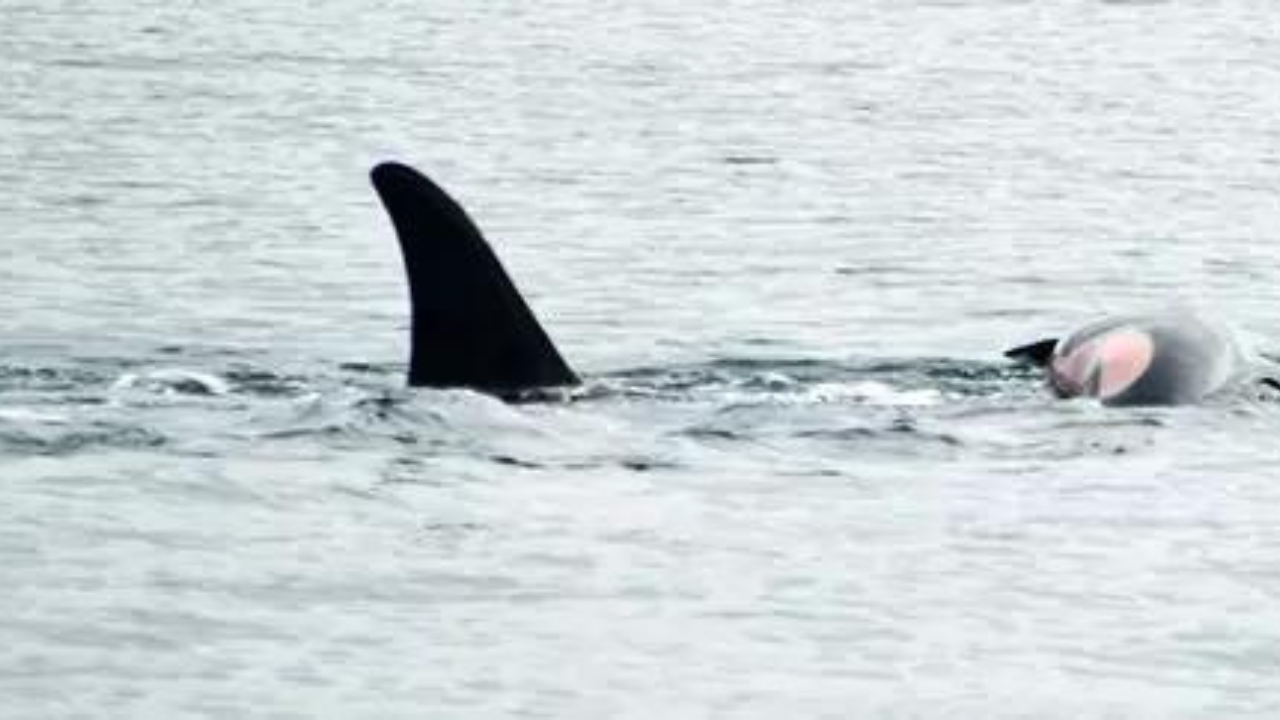Heartbreaking Orca Tragedy: Mother's Unwavering Devotion in the Face of Loss
Prepare to be moved by the incredible story of Tahlequah, an orca mother's unwavering devotion to her deceased calf. This deeply emotional tale highlights the profound bond between mother and child and the urgent need for protecting these endangered creatures. Images of Tahlequah carrying her lifeless calf have captured the hearts of people worldwide, serving as a powerful symbol of grief and the plight of Southern Resident killer whales.
A Mother's Unwavering Grief: Tahlequah's Devastating Loss
The story begins with Tahlequah, a Southern Resident orca known for her powerful displays of grief. In 2018, she carried her deceased calf for 17 days, traveling over 1,000 miles in a poignant display of maternal devotion. This extraordinary event brought international attention to the threats facing these endangered whales. Sadly, in late 2023, Tahlequah suffered another devastating loss, carrying her new calf's body in a heartbreaking repetition of her earlier tragedy.
Understanding the Whale's Behavior
The grieving mother's actions—carrying her calf's body and refusing to let go—are not simply instinctive maternal behaviors but rather powerful demonstrations of complex emotions and bonding. Tahlequah's prolonged grief illustrates her exceptional attachment and love for her offspring. Experts are working to discover the cause of death, but several factors put the Southern Resident orcas under constant pressure, endangering their existence.
The Plight of the Southern Resident Killer Whales: An Endangered Species
The Southern Resident killer whale population faces several serious threats that directly impact their survival and well-being. The low availability of Chinook salmon, their primary food source, leads to malnutrition and reproductive issues. The noise pollution from boat traffic disrupts their communication and echolocation, creating stress and making it more difficult to locate food sources. Lastly, the presence of toxins, bioaccumulated from the ocean, contributes to weakened immune systems and hinders successful reproduction.
Challenges to Whale Survival: Food Scarcity, Pollution, and Noise
Each factor contributes significantly to the decline of the population, creating a cumulative impact that makes it challenging for these intelligent creatures to thrive. The threats create a ripple effect throughout the population. They affect food accessibility, which causes nutritional deficiencies in offspring, and the disruption of communication further compromises successful feeding and mating.
Hope Amidst Despair: A New Calf and Conservation Efforts
Amidst Tahlequah's sorrow, there's a glimmer of hope. Scientists recently spotted a new calf born within the same pod, a testament to life's resilience. This addition signifies potential, offering hope that this population is able to adapt and reproduce despite the many stressors they face. There is hope, however, as several organizations and agencies actively work to improve the conditions in the habitat.
Conservation Efforts: A Collaborative Approach to Protecting Whales
Multiple collaborative conservation efforts seek to support Southern Resident orcas, primarily addressing the factors contributing to their endangerment. Collaborative initiatives focus on protecting Chinook salmon habitats, reducing noise pollution, mitigating the impact of toxins through stricter regulations, and improving awareness and education. If the factors that affect this species are mitigated, then there may be a chance for increased breeding and survival among Southern Resident killer whales.
The Importance of Protecting these Magnificent Creatures
Tahlequah's profound grief is a poignant reminder of the critical need for protecting this endangered species. The whales are important and sensitive indicators of overall ecosystem health. Efforts to protect the endangered Southern Resident orcas may help to save many species whose survival depends on a similar marine ecosystem.
What You Can Do to Help Protect Orcas
Support organizations actively engaged in orca conservation efforts. Advocate for better protection of the whales' habitats. Be aware of noise and waste impact and encourage sustainable practices in the marine environment.
Take Away Points
- Tahlequah's story highlights the emotional depth and intelligence of orcas.
- Southern Resident killer whales are critically endangered, threatened by food scarcity, pollution, and noise.
- There is ongoing hope; a new calf's birth offers optimism, and various conservation projects are striving to make changes that may increase survival rates of whales in the area.
- Collective action is necessary to safeguard these magnificent animals and their ecosystem.









